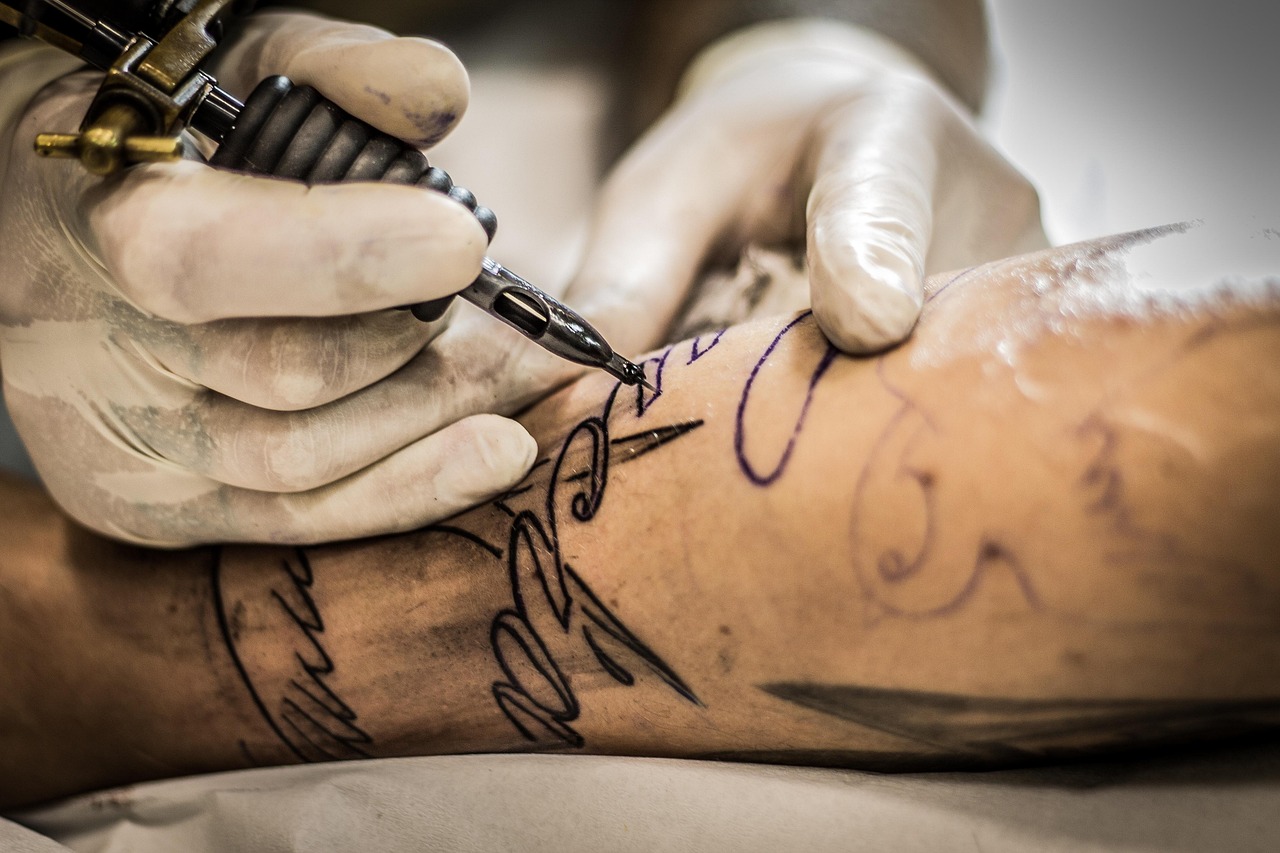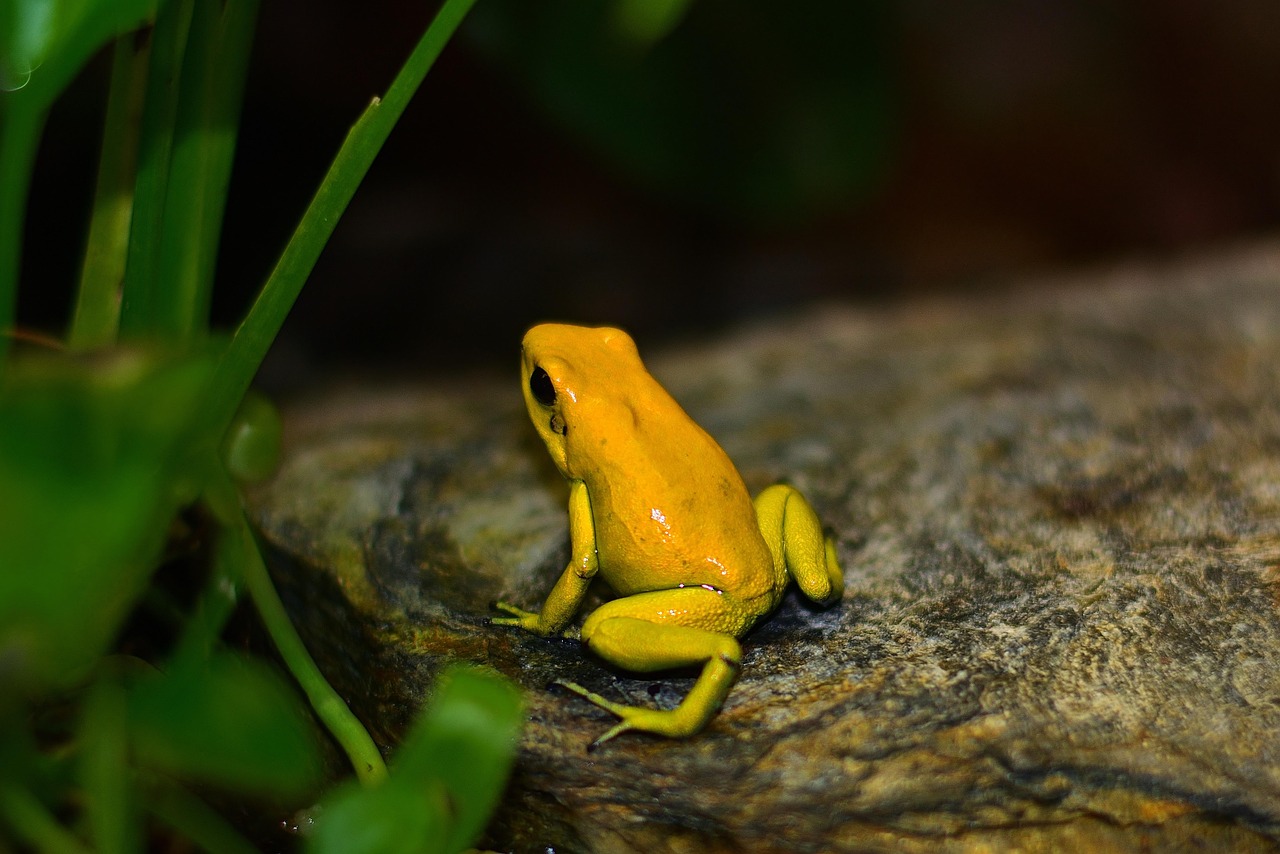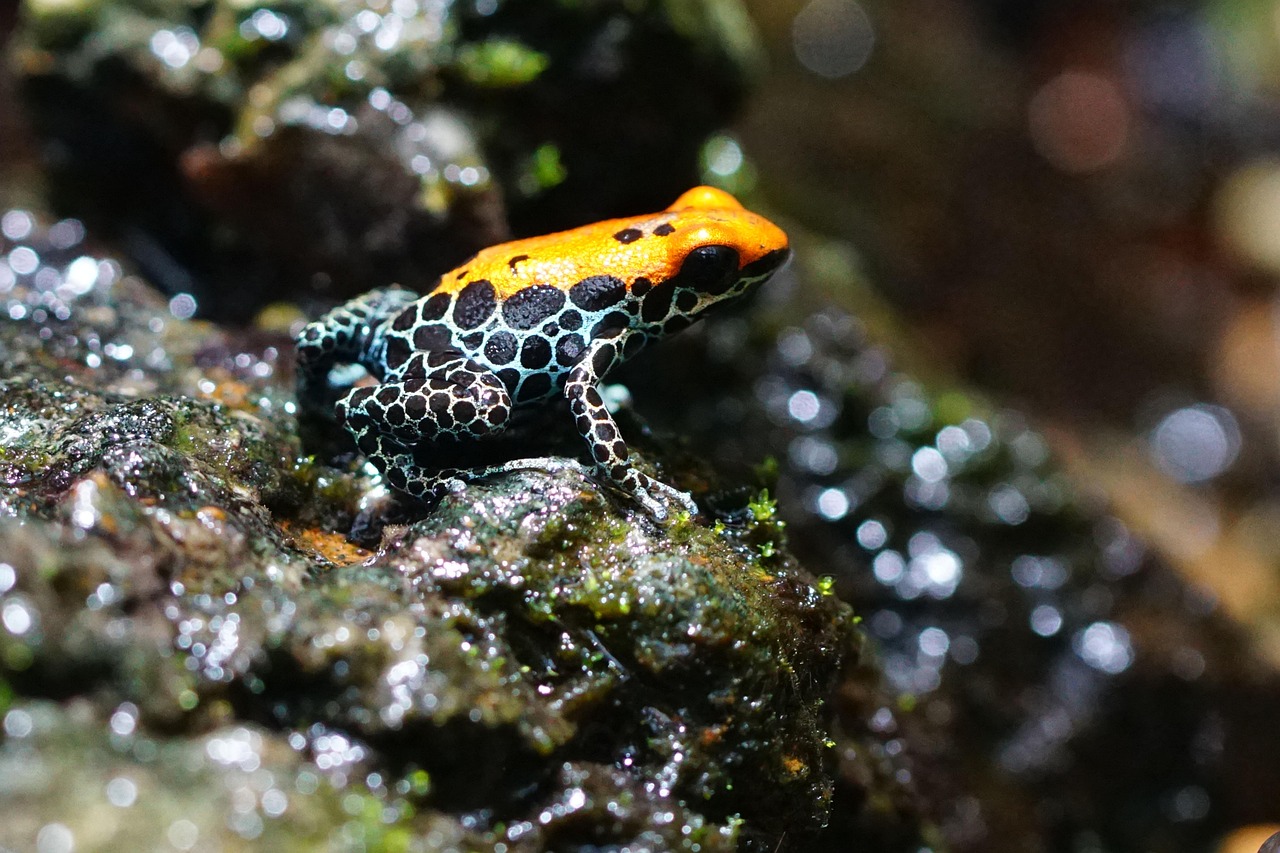Poison tree tattoos symbolize the duality of emotions, particularly the balance between love and hate. They represent personal growth through adversity, the potential for bitterness, and the importance of addressing unresolved feelings to avoid toxic outcomes.
Understanding Poison Tree Tattoos
Tattoo art has long been a form of self-expression, conveying complex emotions and personal stories. Among various designs, poison tree tattoos stand out for their rich symbolism. These tattoos often depict a tree with twisted branches, dark leaves, and sometimes even fruit. The imagery evokes strong feelings and thoughts about life’s challenges.

The concept behind poison tree tattoos can be traced back to literature and philosophy. The term “poison tree” originates from William Blake’s poem “A Poison Tree,” which explores themes of suppressed anger and the consequences of unresolved conflict. In this context, the tree represents emotions that can fester when not addressed. A poison tree tattoo can serve as a reminder to confront feelings rather than allow them to grow toxic.
Moreover, trees themselves are potent symbols in many cultures. They often represent life, stability, and growth. However, the notion of a “poison” tree adds an intriguing twist. It suggests that even something that is generally seen as positive can have negative aspects when left unchecked.
The Symbolism of Trees in Tattoos
Trees in tattoo designs frequently carry deep meanings. Here are some key symbols associated with trees:

| Tree Type | Symbolism |
|---|---|
| Oak | Strength and endurance |
| Pine | Longevity and resilience |
| Willow | Flexibility and adaptability |
| Cherry Blossom | Beauty and the fleeting nature of life |
Incorporating the idea of poison into the traditional symbolism adds layers of meaning. A poison tree tattoo might signify the darker sides of personal growth or highlight struggles with inner demons. It can reflect experiences where love has turned to resentment or where nurturing emotions led to pain.
The Aesthetic Appeal of Poison Tree Tattoos
The visual representation of a poison tree is compelling and artistic. The contrast between the dark, twisted branches and vibrant colors can create a striking design. Many choose to incorporate elements like skulls, flowers, or even quotes to enhance the meaning behind their tattoo. This customization allows individuals to express their unique stories and emotional journeys.
Additionally, poison tree tattoos can vary in style. Some may prefer realistic depictions that capture the intricate details of bark and foliage, while others might lean towards abstract or minimalist designs. The choice of color also plays a significant role; darker hues may evoke a sense of foreboding, while bright colors can suggest hope amidst darkness.

Cultural Interpretations
Across different cultures, trees have been revered as symbols of life and growth. However, interpretations of a poison tree can differ widely. In some traditions, it may signify caution against unaddressed emotions or unhealthy relationships. In others, it might represent the beauty that can emerge from pain.
In modern society, poison tree tattoos have gained popularity among those who resonate with their deeper meanings. They are often chosen by individuals who have experienced personal growth through adversity or who wish to remind themselves of the importance of emotional honesty.
As tattoo culture continues to evolve, designs like poison tree tattoos highlight how art can reflect complex human experiences. They serve not only as personal reminders but also as conversation starters about emotional health and resilience.
Common Designs and Elements in Poison Tree Tattoos
Poison tree tattoos encompass a variety of designs and elements that enhance their meaning and aesthetic appeal. Artists often incorporate specific motifs to convey deeper messages. Understanding these common designs can help individuals choose a tattoo that resonates with their personal experiences.

Popular Motifs in Poison Tree Tattoos
Here are some popular motifs that often accompany poison tree tattoos:
- Fruits: The inclusion of fruits, especially dark or rotting ones, symbolizes temptation and the consequences of poor choices.
- Skulls: Skulls can represent death or the idea of overcoming struggles. They add a stark contrast to the beauty of the tree.
- Thorns: Thorns signify protection but also pain. They can represent the struggle associated with personal growth.
- Flowers: Flowers, particularly those that symbolize rebirth, may juxtapose the dark aspects of the poison tree, highlighting hope and regeneration.
These elements work together to create a narrative within the tattoo. For instance, a tree adorned with vibrant flowers and decaying fruit can illustrate the duality of life, showcasing both beauty and decay.
Color Choices and Their Meanings
The colors used in poison tree tattoos significantly influence their emotional impact. Different colors evoke distinct feelings and interpretations:
| Color | Meaning |
|---|---|
| Black | Symbolizes mourning, loss, or the darker aspects of life. |
| Red | Represents passion, anger, or strong emotions. |
| Green | Symbolizes growth, healing, and hope. |
| Purple | Represents spirituality, transformation, and complexity. |
Selecting colors carefully can enhance the message of a poison tree tattoo. For instance, using deep reds alongside dark greens can emphasize the tension between harmful emotions and the potential for healing.
The Personal Significance of Poison Tree Tattoos
Many individuals choose poison tree tattoos for deeply personal reasons. These tattoos often symbolize life experiences, struggles, and growth. Here are several themes that resonate with wearers:
- Healing from Past Trauma: Many choose this tattoo as a reminder of their journey through difficult times, illustrating how they have emerged stronger.
- Emotional Expression: Some individuals use poison tree tattoos to express unaddressed feelings such as anger or sadness that they have carried for years.
- Transformation: The tattoo can signify a transformative experience where one has learned to embrace both light and darkness in life.
This personal significance adds layers to the design, making it not just an aesthetic choice but a powerful reminder of one’s journey.
Placement Considerations for Poison Tree Tattoos
The placement of a tattoo is crucial as it can affect its visibility and personal meaning. Here are some common placements for poison tree tattoos and their implications:
- Forearm: Easily visible, symbolizing an open expression of emotions.
- Back: Offers a larger canvas for intricate designs, often representing a personal journey that is not immediately visible to others.
- Chest: A significant area that can signify emotional weight or connection to the heart.
- Ankle: Often chosen for more subtle tattoos, representing personal growth that is kept close yet hidden.
The choice of placement reflects how individuals wish to share their stories. Some may prefer more visibility to encourage discussion about their experiences, while others may choose areas that are less noticeable, keeping their journey more private.
Caring for Poison Tree Tattoos
Caring for a tattoo is essential to ensure its longevity and vibrancy. Here are some important tips for maintaining poison tree tattoos:
- Keep it Clean: Gently wash the tattoo with mild soap and water daily.
- Avoid Sun Exposure: Protect the tattoo from direct sunlight to prevent fading. Use sunscreen on exposed areas.
- Moisturize: Apply a fragrance-free moisturizer to keep the skin hydrated and prevent dryness.
- Avoid Swimming: Refrain from swimming in pools or oceans until the tattoo is fully healed.
Proper care helps preserve the intricate details and colors of the poison tree tattoo. Taking these steps ensures that the tattoo continues to tell its story for years to come.
Exploring the Popularity of Poison Tree Tattoos
In recent years, poison tree tattoos have gained significant popularity among diverse groups of people. This trend reflects a broader movement in tattoo culture towards designs that carry deep personal meanings. Understanding the reasons for their rise in popularity can offer insights into their significance.
The Influence of Social Media
Social media platforms have played a pivotal role in popularizing poison tree tattoos. Artists and enthusiasts share their designs online, which inspires others to explore similar themes. Here are some ways social media influences tattoo trends:
- Visual Inspiration: Platforms like Instagram and Pinterest allow users to view a wide variety of tattoo styles and designs, making it easier to discover poison tree tattoos.
- Community Engagement: Online forums and groups foster discussions about tattoo meanings and experiences, creating a sense of community among wearers.
- Artist Exposure: Tattoo artists can showcase their portfolios, attracting clients who resonate with their unique styles.
This digital exposure has led many individuals to choose poison tree tattoos as a way to express their personal stories through art. The fusion of art and storytelling resonates strongly with modern tattoo culture.
Celebrity Influence and Media Representation
Another factor contributing to the popularity of poison tree tattoos is the influence of celebrities and public figures. Many celebrities openly display their tattoos, making them a part of their personal brand. Some have even chosen designs that echo the themes found in poison tree tattoos. The following points highlight this trend:
- Visibility: When celebrities showcase tattoos, they often spark interest among fans, leading to increased demand for similar designs.
- Cultural Significance: Celebrities often choose tattoos that reflect deeper meanings, encouraging fans to consider the symbolism behind their own choices.
- Fashion Statement: Tattoos have evolved from taboo to trendy, with many individuals viewing them as fashionable accessories.
The connection between tattoo culture and celebrity influence reinforces the idea that these designs can carry significant meaning while also serving as a form of self-expression.
The Emotional Connection to Poison Tree Tattoos
Many individuals are drawn to poison tree tattoos because they resonate with their personal experiences and emotions. The emotional connection can make these tattoos deeply meaningful. Here are some reasons why people choose to get them:
Symbolism of Personal Struggles
For many wearers, poison tree tattoos symbolize personal struggles or battles with negative emotions. The decision to permanently ink this imagery can serve as a form of catharsis. Some common emotional connections include:
- Overcoming Adversity: The tattoo can represent triumph over life’s challenges, serving as a reminder of resilience.
- Embracing Duality: It acknowledges the coexistence of both light and dark experiences in life, symbolizing growth through pain.
- Healing from Relationships: For some, the tattoo signifies moving on from toxic relationships or experiences that once caused harm.
This emotional aspect makes poison tree tattoos not only visually striking but also profoundly significant for those who wear them.
Connecting with Nature
Trees have been revered in various cultures for their beauty and strength. The inclusion of a poison tree in tattoo art allows individuals to connect with nature on a symbolic level. This connection can manifest in several ways:
- Growth and Renewal: Just as trees grow and adapt, individuals may see their own journeys mirrored in the resilience and adaptability of trees.
- Environmental Awareness: Some wearers choose poison tree tattoos to express their commitment to environmental issues, using the symbolism to advocate for nature conservation.
- Cultural Heritage: For some cultures, trees hold special significance. A poison tree tattoo may connect an individual to their heritage or ancestral stories.
This connection between personal experience and natural symbolism creates a rich tapestry of meaning for those who choose poison tree tattoos.
The Artistic Process Behind Poison Tree Tattoos
The creation of a poison tree tattoo is an intricate process that involves both the artist’s skill and the client’s vision. Understanding this process can enhance appreciation for the art form. Here are the key steps involved:
Consultation with the Artist
The first step in getting a poison tree tattoo is having a consultation with the tattoo artist. This meeting allows for an exchange of ideas and helps establish a mutual understanding of the design. Important aspects discussed during this consultation include:
- Design Preferences: Clients share their vision, including specific elements they want in their tattoo.
- Size and Placement: Decisions about where on the body to place the tattoo and how large it should be are made during this stage.
- Symbolic Meaning: Clients may explain the personal significance behind their choice, guiding the artist’s creative approach.
This collaboration between client and artist is crucial in creating a unique and meaningful design that reflects the individual’s journey.
The Tattooing Process
Once the design is finalized, the actual tattooing process begins. This involves several steps:
- Preparation: The artist prepares the workstation, ensuring cleanliness and safety measures are in place.
- Stenciling: A stencil of the design is applied to the skin to guide the tattooing process.
- Tattooing: Using professional equipment, the artist carefully inks the design onto the skin, paying attention to detail and shading.
- Aftercare Instructions: Once completed, the artist provides aftercare guidelines to ensure proper healing.
This artistic process highlights the skill involved in creating poison tree tattoos while emphasizing their personal significance for clients. Each tattoo tells a story, making it a unique expression of identity and experience.
Exploring Variations of Poison Tree Tattoos
Within the realm of poison tree tattoos, variations abound that cater to personal preferences and unique stories. These variations can reflect different artistic styles, cultural influences, or specific meanings that individuals wish to convey through their tattoos.
Artistic Styles
Artists interpret the poison tree theme in diverse ways, leading to various styles. Some popular artistic styles for poison tree tattoos include:
- Realistic: This style captures the intricate details of a tree, often showcasing lifelike bark textures and foliage. Realistic poison tree tattoos may evoke a strong emotional response due to their vivid representation.
- Traditional: Traditional tattoo art incorporates bold outlines and vibrant colors. A poison tree in this style might feature exaggerated elements, making it visually striking and more emblematic.
- Watercolor: Watercolor tattoos blend colors in a way that mimics the effect of watercolor painting. This style can create an ethereal look, adding a sense of beauty to the darker themes of a poison tree.
- Abstract: Abstract designs often focus on shapes, lines, and colors rather than realistic representations. This style allows for a more personal interpretation of the poison tree concept.
The choice of style allows individuals to reflect their personality and artistic taste while conveying the deeper meanings associated with the poison tree tattoo.
Cultural Influences
Culture plays a significant role in shaping the symbolism of tattoos. Poison tree tattoos may draw inspiration from various cultural elements, such as:
- Mythology: Many cultures have stories that involve trees representing knowledge or life. Integrating mythological elements into a poison tree tattoo can highlight these cultural connections.
- Folklore: Local legends or folklore can influence the design choices, adding layers of meaning linked to personal or cultural narratives.
- Spiritual Beliefs: In certain spiritual traditions, trees symbolize a connection to the divine or the cycle of life and death. A poison tree tattoo may represent a balance between these spiritual themes.
Incorporating cultural influences not only enriches the design but also connects wearers to their heritage or beliefs, further personalizing their tattoos.
The Impact of Poison Tree Tattoos on Identity
For many individuals, tattoos serve as an important aspect of self-identity. Poison tree tattoos, in particular, can have a profound impact on how individuals perceive themselves and how they wish to be perceived by others. Here are some ways these tattoos contribute to identity formation:
Personal Narratives
Tattooing is often seen as storytelling through art. Poison tree tattoos encapsulate personal narratives related to struggle and growth. Wearers may find empowerment in expressing their past experiences through this visual medium. Some key aspects include:
- Emotional Healing: The act of getting a tattoo can be therapeutic, allowing wearers to externalize their feelings and embrace their journeys.
- Conversation Starters: These tattoos often prompt discussions about their meanings, allowing individuals to share their stories and connect with others on a deeper level.
- Affirmation of Strength: Displaying a poison tree tattoo can serve as a constant reminder of one’s resilience and ability to overcome challenges.
Community Connection
The tattoo community is vibrant and diverse, providing opportunities for connection among those who share similar experiences or aesthetic preferences. Poison tree tattoos can foster connections in several ways:
- Shared Experiences: Individuals with similar life experiences may be drawn to the symbolism of poison trees, creating bonds over shared stories.
- Support Networks: Many find comfort in communities focused on healing and resilience, where poison tree tattoos may serve as symbols of solidarity.
- Cultural Events: Tattoo conventions and art shows provide spaces for individuals to showcase their tattoos and meet others with similar interests.
This sense of community can enhance the overall experience of having a poison tree tattoo, making it more than just an art form but a part of one’s identity within a larger narrative.
Final Thoughts
Poison tree tattoos are rich in symbolism and meaning. They embody complex emotions related to personal growth, struggle, and healing. Their increasing popularity reflects a broader cultural movement towards meaningful self-expression through body art. Each tattoo is not only an artistic choice but also a representation of individual experiences and narratives.
The various styles and cultural influences associated with poison tree tattoos further enrich their significance. As wearers continue to explore these designs, they are reminded of their journeys and the importance of addressing both light and dark aspects of life. Ultimately, poison tree tattoos serve as powerful symbols of resilience and transformation, connecting artistry with deeply personal stories that resonate on many levels.
Whether chosen for their aesthetic appeal or profound meanings, these tattoos will continue to inspire conversations and connections among those who wear them, highlighting the enduring power of storytelling through ink.
